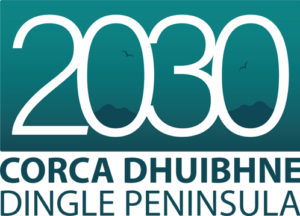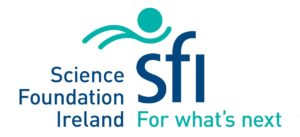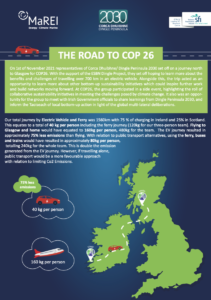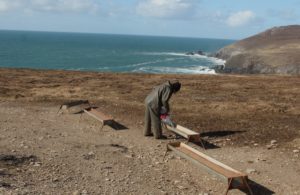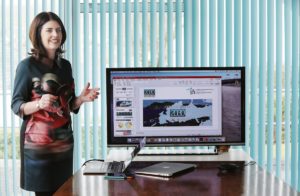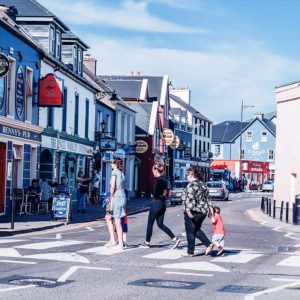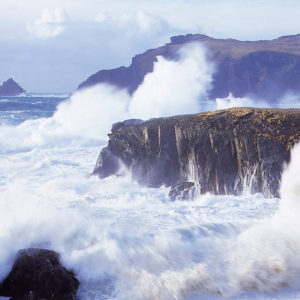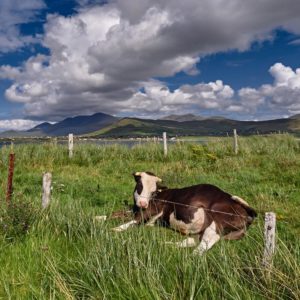From Department of Further and Higher Education, Research, Innovation and Science
Published on 22 March 2021
Last updated on 22 March 2021
Minister for Further and Higher Education, Research, Innovation and Science Simon Harris TD has today (Monday) announced €5.2 million in funding to support 49 projects as part of Science Foundation Ireland’s Discover Programme.
The funding will support a number of exciting projects including supports for deaf and hard of hearing people who wish to learn Science, Technology, Engineering or Maths, or Girls Coding which seeks to address imbalance by encouraging, facilitating, and providing opportunities to teenage female students to engage with Computer Science.
The projects also include ‘AI in My Life’ led by DCU which will engage 500 Dublin teenagers from disadvantaged backgrounds in a 15-week (20-hour) co-created, interactive workshop series encouraging them to reflect on their experiences in a world shaped by artificial intelligence, personal data processing and digital transformation.
Students will be empowered to evaluate the ethical and privacy implications of AI in their lives, to protect their digital privacy and to activate STEM career and university awareness.
Speaking today, Minister Harris said:
“We can all see that science and technology are changing the world around us at a pace far greater than ever before.
“The COVID-19 pandemic has brought home to us just how important the science, technology, engineering and mathematics, or STEM, fields are. It’s vital that younger people in particular feel encouraged to participate in STEM careers, and that there are no barriers to entry.
“More widely, we want people to have access to and to understand the issues that impact our collective future, things like clean water and energy, and the role science and technology can play in providing solutions.
“The projects being announced today cover topics from biodiversity to digital wellbeing, and all points between. It’s a wide-ranging national conversation about how science can and will change the world, and how we are going to deal with that as a country.”
The 49 projects will take place local and nationally across Ireland covering topics including biodiversity, STEM sign language, climate action and sustainability, coding, epilepsy, understanding pandemics, digital wellbeing, and the link between music, maths, and physics. The initiatives also target a wide range of ages including young children, teens, and adults as well as some initiatives designed for young people from disadvantaged backgrounds and attending DEIS schools and those living with sight loss – encouraging inclusivity and diversity.
The projects supported include:
Irish Sign Language STEM Glossary Project – National Expansion – this project aims to promote and support STEM education for Deaf and Hard of Hearing (DHH) people by developing an agreed lexicon in Irish Sign Language for STEM terms. The absence of agreed signs for STEM vocabulary inhibits the teaching of STEM subjects at all levels of education and presents difficulties for those working in interpreting.
Eco Showboat Expedition 2021 – a floating environmental science laboratory and art studio, bringing communities, scientists, and artists together across Ireland to observe, draw, photograph and film freshwater biodiversity through workshops.
Girls Coding – CodePlus – seeks to address imbalance by encouraging, facilitating, and providing opportunities to teenage female students to engage with Computer Science. This project includes an expansion to the Galway and Limerick areas, in addition to the Dublin based activities funded under the SFI Discover Programme in previous years.
Igniting Curiosity in STEM: IET FIRST LEGO League – inspires children and young people from the ages of 4-16 to understand and shape the world that they live in, in a more sustainable, equitable and inclusive way.
Dingle Peninsula 2030 – A Model Enabling Community-led Climate Action – the project will build capacity for STEM engagement in community-based climate action, which provides an ideal platform for up-scaling and amplified impact, from local to national levels. This project will be led by MaREI SFI Research Centre for Energy, Climate and Marine.
Science 4 Sight Loss – The co-creation group and planned workshops will help stimulate engagement and curiosity in STEM, provide insights into STEM-related careers and inspire this underrepresented group to have confidence in their ability to tackle the barriers of diversity and inclusion in STEM.
Educational platform for Irish beekeepers (EDIBEE) – this project will engage beekeepers with STEM through a series of workshops to explore other skills and technology that can be used with beekeeping.
‘AI in My Life’ led by DCU will engage 500 Dublin teenagers from disadvantaged backgrounds in a 15-week (20-hour) co-created, interactive workshop series encouraging them to reflect on their experiences in a world shaped by artificial intelligence, personal data processing and digital transformation. Students will be empowered to evaluate the ethical and privacy implications of AI in their lives, to protect their digital privacy and to activate STEM career and university awareness.
The Cyber Academy led by Munster TU is a series of fun and engaging activities for young people (11-18 year olds) to help them explore their passion for tech by introducing them to the world of cyber security.
Epilepsy in English Workshops led by RCSI University of Medicine and Health Sciences comprises four workshops, with accompanying online resources, aiming to educate, equip and empower contributors to co-create fully-engaged research.
The Human Lab at Electric Picnic 2021 will manifest itself as a colourful, bold and brand new STEM engagement hub at Electric Picnic – Ireland’s biggest annual outdoor music and arts festival.
Little Big Questions (LBQ) takes young school children from disadvantaged areas and brings them to University College Dublin (UCD) to explore exciting science through play and inquiry-based learning in a purpose-built outreach laboratory.
Quavers to Quadratics (Q2Q) led by the National Concert Hall, is a series of workshops for primary school children, primarily from DEIS schools, highlighting the overlap between music, maths and physics, and responding to the lack of STEM engagement typical in such schools.
Notes
For further information, please visit www.sfi.ie.
Press release from https://www.gov.ie/en/press-release/58a2c-minister-harris-announces-52-million-to-support-science-foundation-ireland-discover-programme/#
